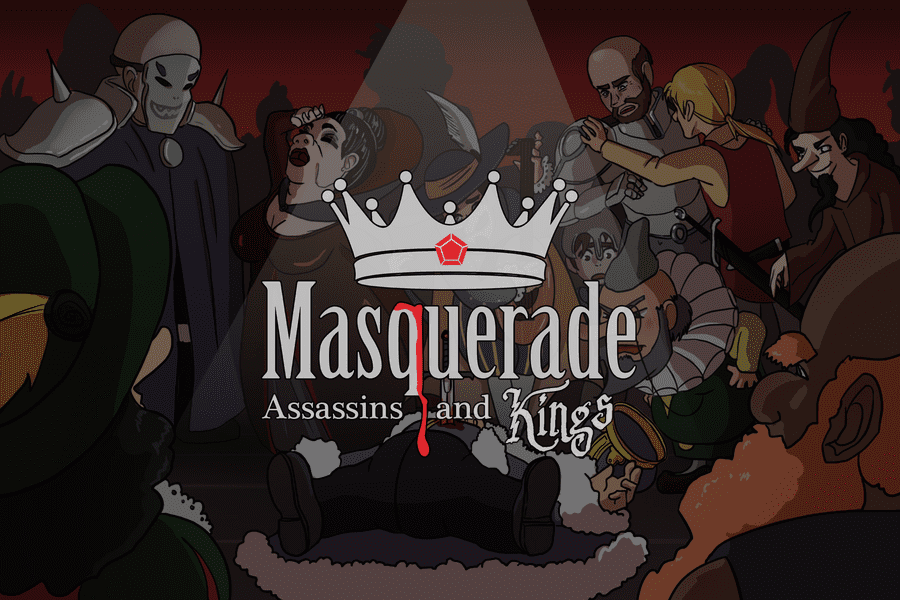Masquerade (2013) Board Game
Masquerade is a card game released in 2013, designed by Michael Bujtas, Elliott Lutton, and Deanna Vaida. The game is set in Renaissance Venice, where players take on the roles of influential nobles vying for power and influence. The game features a blend of bluffing, deduction, and strategy, making it an engaging and dynamic experience for players.
Game Components of Masquerade
How To Setup Masquerade
To set up Masquerade, each player starts with six gold coins and a random character card that is initially face-up, allowing all players to see each other’s roles. After this initial reveal, all character cards are turned face-down. The first four players perform a ‘Swap’ action, where they take their role card and another player’s card, keep them face-down under the table, and then place one in front of themselves and the other in front of the player whose card they swapped with.
Gameplay Mechanics and Game Objective
Player Experience
Masquerade offers a dynamic and engaging experience, particularly suited for groups that enjoy intrigue and social interaction. Players are constantly swapping cards, claiming roles, and challenging each other, creating a chaotic yet entertaining atmosphere. The game requires a mix of memory, strategy, and bluffing skills, making it appealing to both competitive and strategically inclined players.
Pros
Cons
Personal Thoughts on Masquerade
Masquerade is ideal for groups who enjoy social deduction games, bluffing, and strategic interaction. It is particularly suited for those who appreciate games with variable player powers and dynamic gameplay. However, it may not be the best fit for players who prefer less competitive or less complex games. The game’s ability to accommodate a wide range of players makes it a great addition to any board game collection, especially for those who enjoy Renaissance-themed settings and clever social interactions.
We are supported by our audience. When you purchase through links on our site, we may earn an affiliate commission, at no extra cost for you. Learn more.

